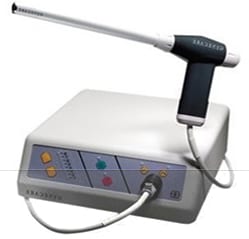Power Morcellators Have Come Under Increased Public Scrutiny
Women may only learn the risk of uterine cancer caused by power morcellation until it’s too late. The dangers associated with power morcellators are not necessarily caused by the devices themselves, but rather, with an unintended consequence of this type of gynecologic surgery. Laparoscopic power morcellators are used during hysterectomies and myomectomies. Hysterectomies involve the removal of the uterus, while myomectomies involve the removal of uterine fibroids. In both procedures, power morcellators work by essentially grinding the large masses of tissue into tiny pieces which can then be removed through small incisions.
Dr. Amy Reed, an anesthesiologist, underwent a laparoscopic hysterectomy to remove fibroid tumors only to discover that morcellation had spread a previously undetected uterine leiomyosarcoma throughout her uterus. The mother of six has since had two cancer operations. Dr. Reed learned after her gynecologic surgery that power morcellation can spread an existing malignancy far beyond its point of origin. In other words, as the power morcellator grinds up the tissue mass, it can cause cancerous cells to be propelled into other organs.
The use of power morcellators has come under increasing public scrutiny recently, following recommendations against their use from the FDA and a public awareness campaign launched by Drs. Amy Reed and her husband, Hooman Noorchashm. Dr. Reed, and her husband have waged a campaign to end the use of power morcellators in gynecological procedures and subject all medical devices to a tougher safety standard. In addition, U.S. Senator Robert Casey Jr. and U.S. Rep. Michael Fitzpatrick have recently sent letters to the Food and Drug Administration (FDA) questioning how the FDA has responded to reports of power morcellators spreading uterine cancer during laparoscopic hysterectomy and myomectomy.
FDA estimated 1 in 350 women undergoing surgery for common benign growths or fibroids using morcellators actually suffer from cancer, which is significantly higher percentages than many doctors had previously thought. The FDA has recommended that surgeon stop using the devices for hysterectomy or myomectomy in most women with uterine fibroids and has slapped a “boxed warning” on the devices saying that they may spread unsuspected cancer. One manufacturer of morcellators, Johnson& Johnson’s Ethicon division, has voluntarily withdrawn its product from the market, and a number of insurers have stopped paying for the procedure or have placed restrictions on its use.
Share This



